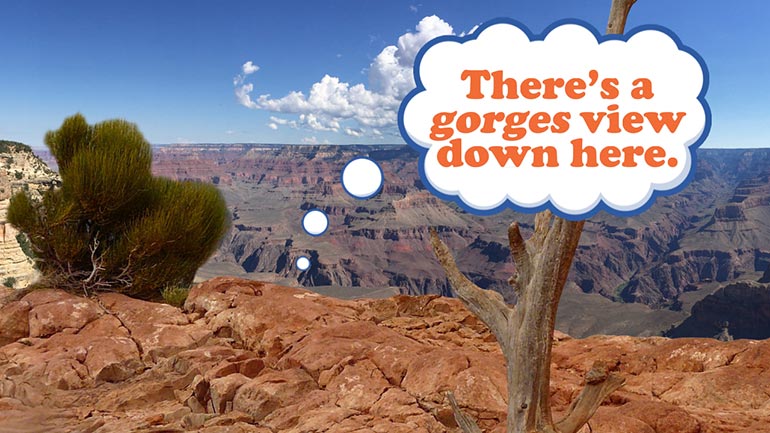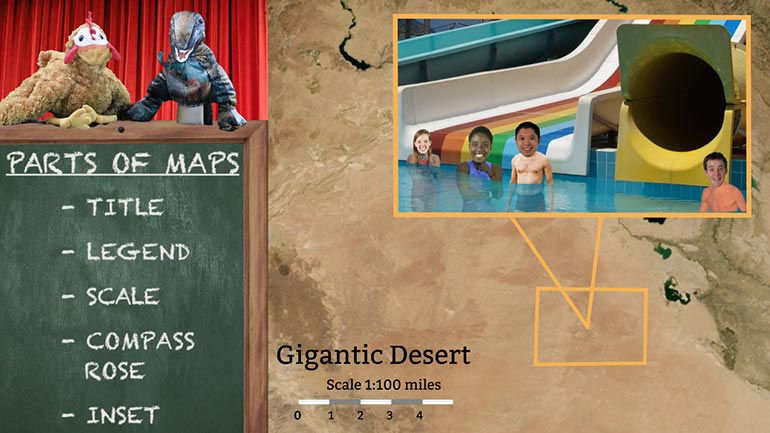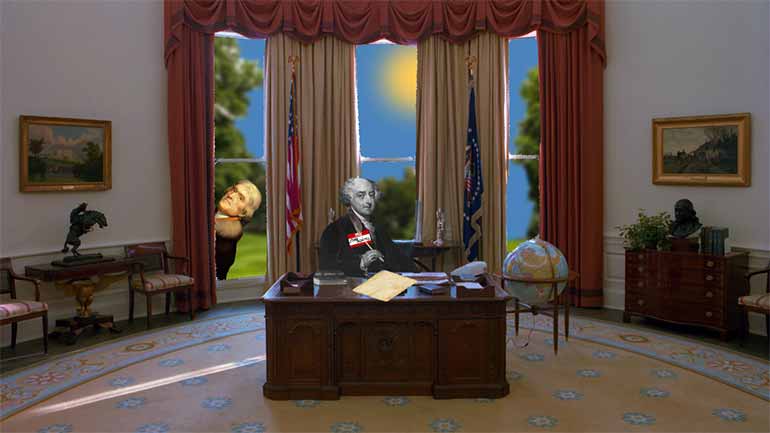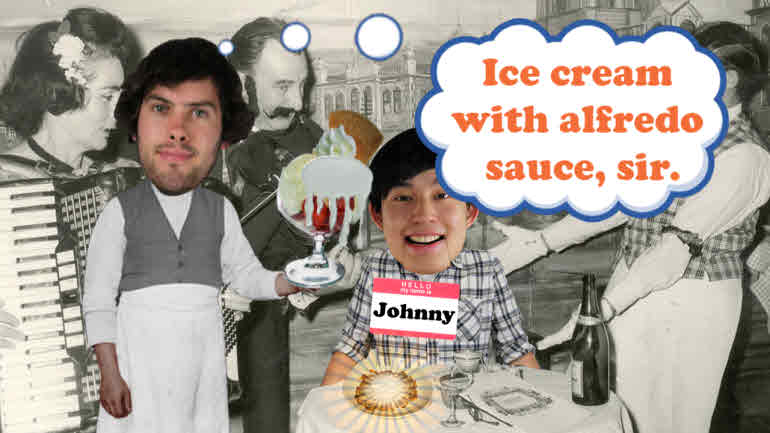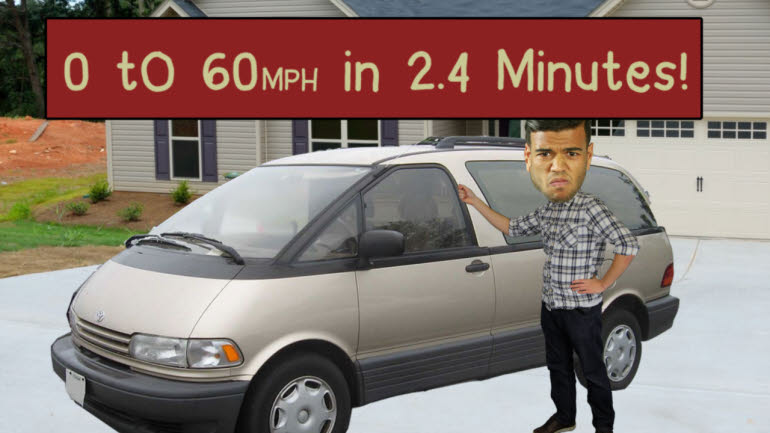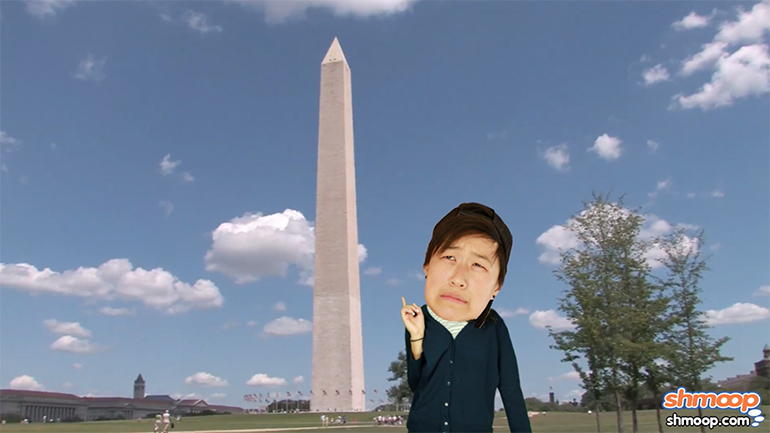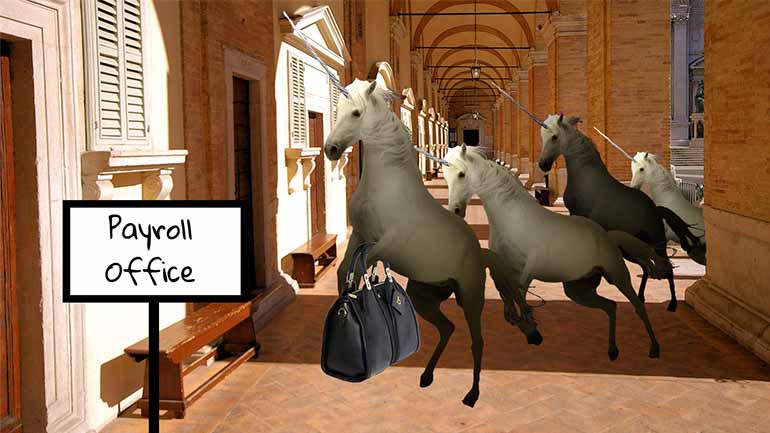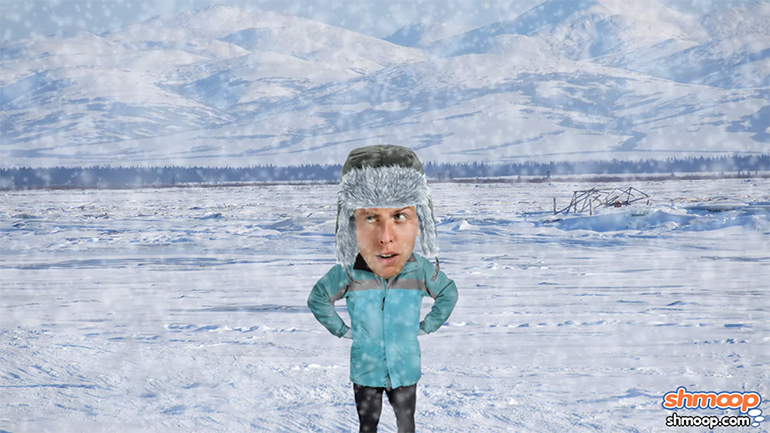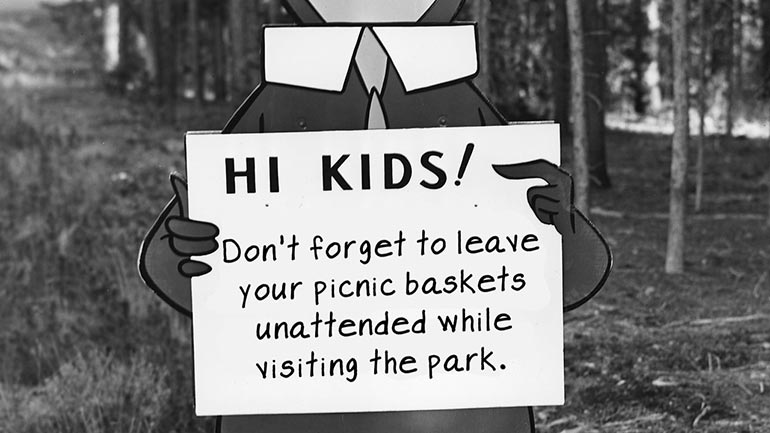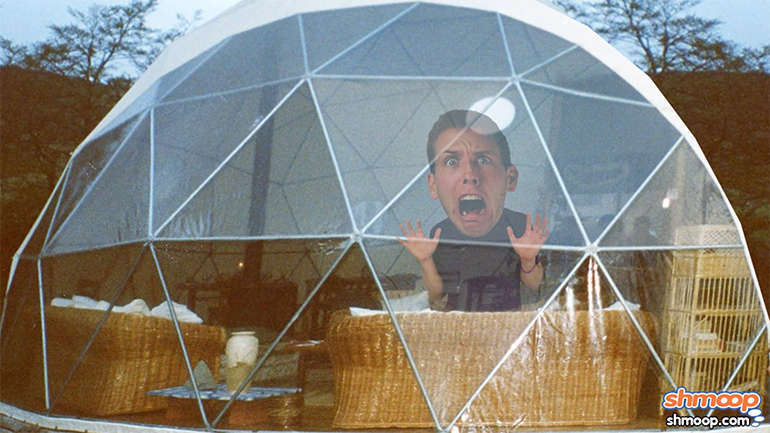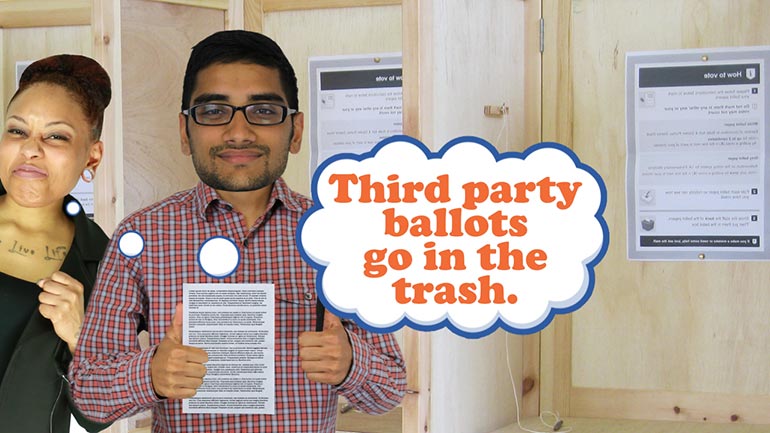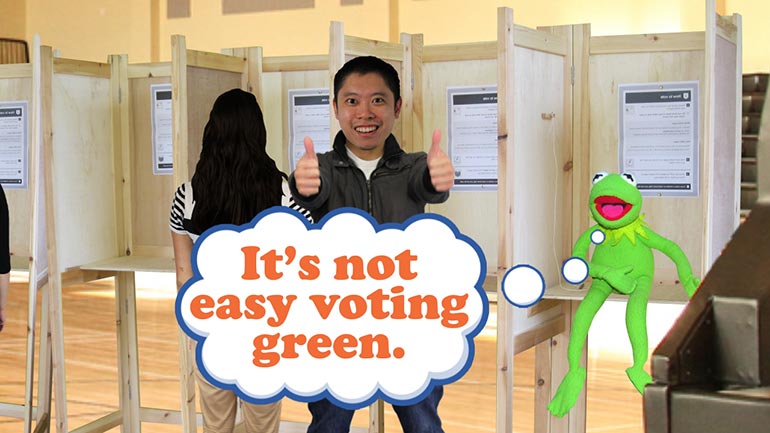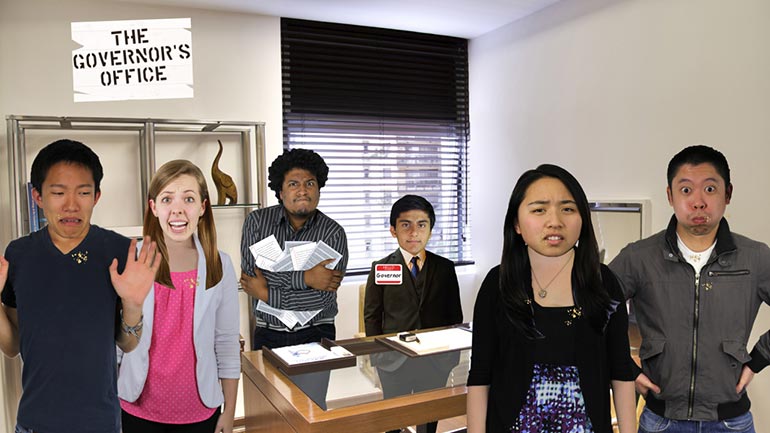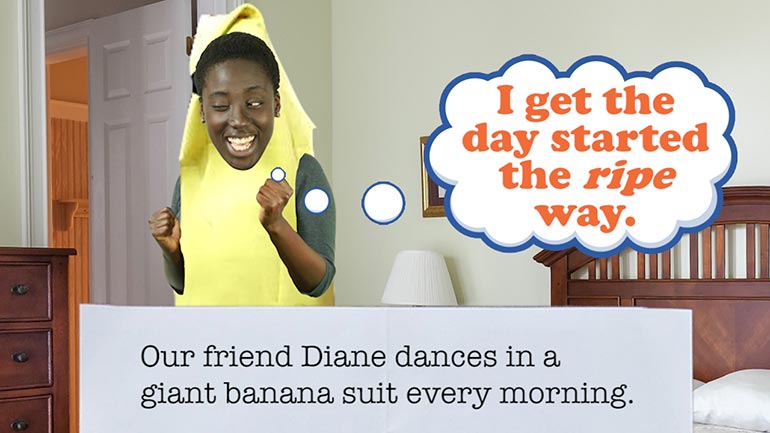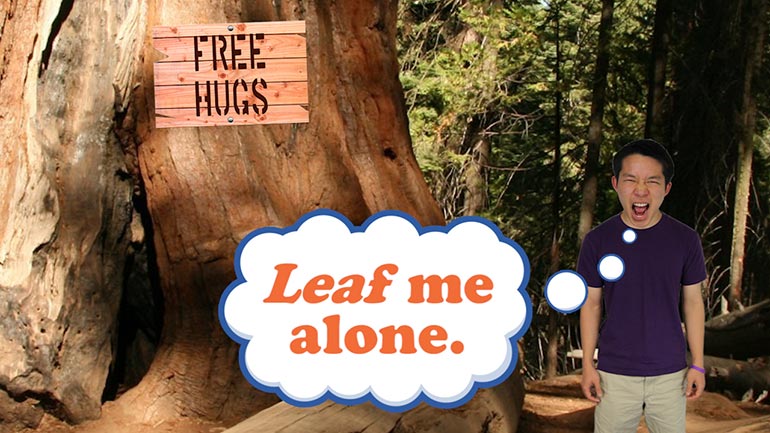ShmoopTube
Where Monty Python meets your 10th grade teacher.
Search Thousands of Shmoop Videos
Social Studies Videos 18 videos
Mountains can be formed by plates colliding and stacking on top of each other. And no, we're not just referring to the "mountains" your mom yelled...
Today we're going to get your butte into gear and teach you all about land forms. Yes, including buttes.
Well...not really anything to be honest. They just kind of lay there. If they moved and did things on their own, that'd be pretty alarming. Oh, but...
Social Studies 4: Population and Location 19 Views
Share It!
Description:
Today we're learning about the study of populations by location. Apparently Washington D.C. is almost 10,000 times as densely populated as Alaska. They're like sardines over there.
Transcript
- 00:04
[Dino and Coop singing]
- 00:13
What would the world look like without humans? [A busy street]
- 00:16
Well there would definitely be some upsides,
- 00:19
There would literally be more more fish in the sea. [Lots of fish]
- 00:21
Bigger rainforests.
Full Transcript
- 00:23
More thriving wildlife. [Elephants]
- 00:25
No pollution.
- 00:26
No global warming.
- 00:27
No Kardashians. [Stop sign appears over a picture of the Kardashians]
- 00:29
But on the downside, the Earth wouldn't have...
- 00:31
Mount Rushmore!
- 00:32
So that's a fair trade off, right? [Picture of Mount Rushmore]
- 00:38
Well whether or not planet Earth would have been better off without us, we're here to
- 00:42
stay. For a while at least.
- 00:44
And that means we're here to be studied – by sociologists, psychologists, and even geographers. [Scientists watching people in cells]
- 00:50
That's right, because geography includes the study of the population that [Coop pointing at a blackboard]
- 00:53
lives in a particular location.
- 00:56
Population studies include the number of people in a location, majors towns and [Dino pointing at a blackboard]
- 01:00
cities, and specific data about the people that live there, like their age, gender and
- 01:05
type of home they have.
- 01:06
This information is collected by the U.S. Census Bureau through phone calls, surveys
- 01:10
and door-to-door visits,
- 01:11
if one of them approaches you with a questionnaire while you're having lunch at subway,
- 01:15
You should report them, they're not supposed to do that [Man about to eat his sandwich looks angry]
- 01:19
If a geographer were to look at population data about Alaska, they might find that as of 2012
- 01:24
the population was 731,449.
- 01:27
Alaska is the largest state in the U.S by land area, and only 1.2 people live in each [Man appears with a woolly hat]
- 01:33
square mile. Which means people can really blast their music without worrying about complaints [Guy in winter dress with his thumbs up next to a speaker wall]
- 01:38
Anyway a geographer could then compare Alaska to Hawaii, which had a population of 1,392,313
- 01:46
in 2012.
- 01:47
With a much smaller area composed of small islands, Hawaii has a wopping 211.8 people
- 01:55
per square mile. [Lots of people crowded together on a tiny island]
- 01:58
Still not downtown Manhattan but still more crowded than Alaska.
- 02:00
Washington, DC is the smallest of the three by size at only 68 square miles, but had a
- 02:06
2012 population of 632,323, which means that 9299 people live in each square mile of DC. [A huge crowd with people packed together]
- 02:17
And roughly 8000 of those are lobbyists." [Lobbyist holding sweets]
- 02:21
By analyzing population data, geographers can gain insight into how the physical geography,
- 02:26
climate and economy might impact changes in population.
- 02:30
For example, if the change in climate began to cause a particular area to have more
- 02:34
hurricanes than before, you could understand why the population might shrink as people [Guy with a briefcase is blown away]
- 02:39
to more comfortable safer and less blustery locations. [Guy sits down on the couch with his hair messy because of the wind]
- 02:43
Or the opening up a brand new gigantic factory which might encourage people to move nearby in order [Factory workers]
- 02:48
to get a job there.
- 02:49
There are plenty of other reasons related to climate, geography or economy – that
- 02:53
might cause individuals to move to or from a particular area. [Guy freezing in the snow wants to move to Florida]
- 02:56
Usually though it's not because thousands of people are trying to move closer to the Cold Stone creamery. [Big crowd appears outside the Cold Stone]
- 03:01
Although it's almost worth it. [Guy says he was he here first]
Related Videos
Sticks and stones, right? Well...only sometimes. It's a good idea to make sure your words aren't going to hurt others. Let's look at some ways to d...
Learn to debate like a champ. It's way better than debating like a chimp. That just takes mudslinging to a whole new level.
Today we'll learn about biographies and autobiographies. And no, the second one has nothing to do with the lives of cars.
In this lesson we'll subject you to some verbs and predicates. Each one is a necessary part of a complete breakfas—er...sentence.
Choosing words carefully is important. You may end up vexing the assemblage of citizens you're conversing with...or you might even just plain bore...
